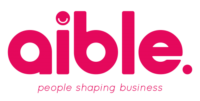The cost-of-living crisis is affecting many people in the UK, as inflation reaches a 40-year high and household bills continue to rise. Many employees are worried about their finances and are looking for support from their employers. A recent poll conducted by the CIPD found that financial insecurity is having a knock-on effect on performance at work. More than a quarter of respondents said money problems were affecting their job performance and a fifth found money worries affected their sleep.
As a business owner, you may be wondering how you can support your employees in this challenging time and help them make their wages go further.
In this blog post, we will share some practical ideas and advice on how to do that, based on our experience as a leading HR consultancy and the latest research and best practices.
Pay a Fair and Liveable Wage
One of the most obvious ways to support your employees is to pay them a fair and liveable wage that covers the basic costs of living. The real Living Wage, set by the Living Wage Foundation, is independently calculated based on what a worker needs to earn to live comfortably. It is currently £10.90 an hour across the UK and £11.95 in London. By comparison, the minimum wage is £10.18, and the national living wage is £10.42.
Paying the real Living Wage can have multiple benefits for your business, such as improving your reputation, boosting employee retention and engagement, and enhancing your social responsibility.
Nearly 10,000 UK employers have already committed to paying the real Living Wage, including household names like IKEA, Aviva, Nationwide and Lush.
Implement a Financial Wellbeing Policy and Provide Financial Education
Another way to support your employees is to implement a financial wellbeing policy that feeds into your wider wellbeing strategy. This can demonstrate your commitment to helping your employees manage their money better and cope with financial stress.
A financial wellbeing policy can include:
- Signposting your employees to independent money and debt guidance, such as the Money Advice Service, Citizens Advice or StepChange.
- Making sure your staff are aware of all the benefits you currently offer, such as pension schemes, employee discounts, salary sacrifice schemes, etc.
- Normalising conversations about money worries at work and creating a culture of trust and support.
- Providing financial education workshops or webinars on topics such as budgeting, saving, investing, debt management, etc. You can either use your own finance team or an outside professional to deliver these sessions, but make sure they are not giving personal financial advice, which is a regulated activity.
- Offering loan consolidation or hardship funds for employees who are struggling with debt or unexpected expenses.
Introduce Salary Sacrifice Schemes
Salary sacrifice schemes are a great low-cost way to help your employees save money on tax and National Insurance contributions. Under these schemes, employees can swap some of their cash pay for tax-free benefits in kind.
These can include:
- Pension contributions
- Childcare vouchers
- Bicycles or bus passes
- Mobile phones or laptops
- Gym memberships or health care plans
Salary sacrifice schemes can help your employees stretch their income further and improve their quality of life. They can also benefit your business by reducing your employer National Insurance contributions and increasing employee satisfaction and loyalty.
Offer an Employee Assistance Programme (EAP)
An Employee Assistance Programme (EAP) is a confidential service that provides your employees with access to online resources, counselling services, legal advice, financial advice and more. An EAP can help your employees deal with personal problems that might affect their work performance, health and wellbeing.
An EAP can be especially helpful for employees who are facing financial difficulties or mental health issues due to the cost-of-living crisis. It can provide them with emotional support, practical guidance and referral services to help them cope better.
An EAP can also benefit your business by reducing absenteeism, improving productivity, enhancing employee engagement and reducing turnover.
Help Your Employees Make the Most of Their Savings
For those employees who are able to save some money each month, it is important that they make the most of their hard-earned savings. You can help them do that by offering savings and investment accounts in the workplace, such as workplace ISAs or share schemes.
These accounts can provide a convenient way for your employees to save or invest directly from their salary, making it habitual and effortless. They can also offer tax advantages or incentives for your employees to participate.
You can also provide financial education on how to choose the best savings or investment options for their goals and risk appetite, as well as how to diversify their portfolio and protect their savings from inflation.
Get in Touch for More Information or Specific Advice
We hope you found this blog post useful and informative. If you want more information and advice on how to support your employees in the cost-of-living crisis, please contact us today.

We are Aible, a leading HR consultancy and a Chartered Member of the CIPD. Our services provide bespoke and flexible HR solutions for small and medium-sized businesses across the UK. We can help you with:
- Developing and implementing a financial wellbeing policy and strategy
- Providing financial education and guidance for your employees
- Reviewing and enhancing your employee benefits and rewards
- Offering an Employee Assistance Programme or other wellbeing services
- And much more!
To find out more about how we can help you, please email ami@aible.co.uk or call us on 02922 360260. We look forward to hearing from you soon!

